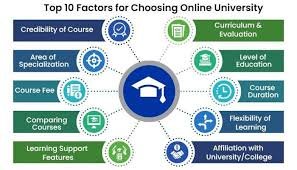Early Childhood Education Degree: A Pathway to Shaping Young Minds
Early Childhood Education Degree (ECE) is a critical phase in human development, laying the foundation for lifelong learning and well-being. Pursuing a degree in early childhood education equips individuals with the knowledge, skills, and competencies to nurture and educate young children, typically from birth to eight years old. This article explores the significance of an ECE degree, the curriculum, career prospects, and the impact of early childhood educators on society.
Importance of Early Childhood Education
Developmental Impact
Early Childhood Education Degree is a period of rapid growth and development. High-quality early education programs significantly influence cognitive, social, emotional, and physical development. Children exposed to well-structured ECE programs often display better language skills, improved social interactions, and enhanced problem-solving abilities.
Long-Term Benefits
Research consistently shows that children who attend quality early childhood education programs are more likely to succeed academically, exhibit fewer behavioral problems, and achieve higher levels of education and employment in adulthood. ECE helps close achievement gaps, providing equal opportunities for children from diverse backgrounds.
Read More: Stony Brook University: A Hub of Excellence and Innovation
Curriculum and Coursework
Early Childhood Education Degree An early childhood education degree program typically includes a combination of theoretical knowledge and practical experience. Key components of the curriculum include:
Child Development
Understanding the stages of child development is fundamental. Courses cover physical, cognitive, and socio-emotional development, helping future educators recognize and support each child’s unique growth trajectory.
Educational Psychology
Early Childhood Education Degree psychology courses delve into how children learn and think. This knowledge aids in creating effective teaching strategies that cater to different learning styles and needs.
Read More: Top Network Security Company List in 2024: A Comprehensive List
Teaching Methods and Strategies
Practical courses focus on classroom management, lesson planning, and instructional techniques. Students learn to design age-appropriate activities that foster learning through play, exploration, and hands-on experiences.
Special Education
Inclusive education is an integral part of ECE. Courses on special education prepare future teachers to work with children with diverse abilities, ensuring all students receive the support they need.
Family and Community Engagement
Effective early childhood education extends beyond the classroom. Courses on family and community engagement emphasize the importance of partnerships with parents and communities in supporting children’s development.
Practicum and Field Experience
Early Childhood Education Degree Hands-on experience is crucial in ECE programs. Students participate in supervised practicums, gaining real-world experience in various early childhood settings such as preschools, daycare centers, and kindergarten classrooms.
Career Prospects
Graduates with an early childhood education degree have a wide range of career opportunities, including:
Preschool Teacher
Preschool teachers play a vital role in preparing children for kindergarten. They create engaging learning environments, develop curriculum, and support children’s social and emotional development.
Kindergarten Teacher
Early Childhood Education Degree Kindergarten teachers build on the foundation laid in preschool, focusing on early literacy, numeracy, and social skills. They foster a love for learning and help children transition smoothly into formal education.
Childcare Center Director
Childcare center directors oversee the operations of early childhood education facilities. They manage staff, develop programs, and ensure compliance with regulations and standards.
Early Childhood Education Consultant
Consultants work with schools, childcare centers, and organizations to develop and improve early childhood programs. They provide training, resources, and support to educators and administrators.
Special Education Teacher
Special education teachers work with young children who have developmental delays or disabilities. They develop individualized education plans (IEPs) and use specialized teaching methods to meet each child’s needs.
Impact on Society
Early childhood educators play a crucial role in shaping the future of society. By fostering a love for learning, promoting social skills, and supporting holistic development, they contribute to the well-being and success of future generations. Quality early childhood education helps reduce social inequalities, promotes economic development, and builds a foundation for a more educated and productive society.
Conclusion
An early childhood education degree is more than a qualification; it is a commitment to nurturing and educating young minds during their most formative years. The knowledge and skills gained through an ECE program enable graduates to make a lasting impact on children’s lives, families, and communities. As society continues to recognize the importance of early childhood education, the demand for skilled and passionate educators will only grow, making this a rewarding and impactful career choice.









